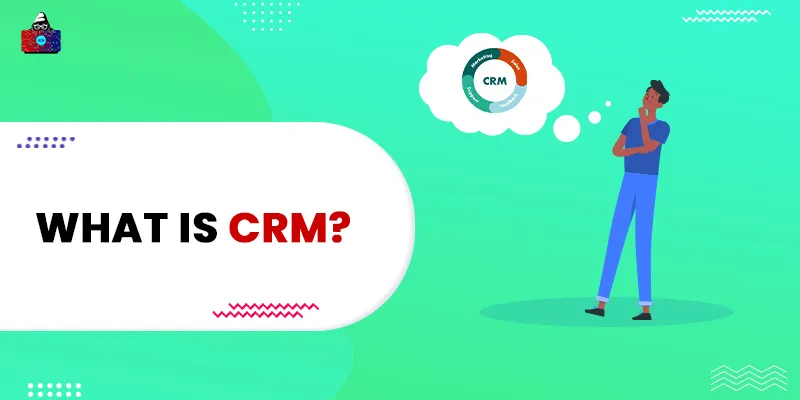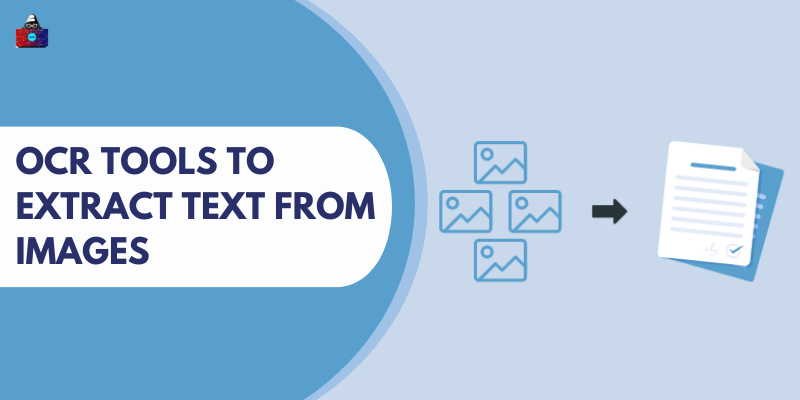Customer relationship management has become a vital tool in almost every size of business. It has proved to be the most beneficial tool for businesses since it helps them build and maintain strong relationships with their customers. As your business grows, you generate a large amount of data. The real struggle is to manage the heaps of data spread across various systems or people. Hence, it becomes pretty challenging for you to leverage those heaps of data for generating sales. This is where CRM comes into play.
CRM is a robust platform that helps you keep all customers' data in one place. Moreover, it allows every employee of your organization to access customer data hassle-free. Not only does this platform centralizes customer data, but it also performs various other tasks.
If you are not familiar with what CRM is, this blog post is for you. Through this blog post, we will make you familiar with what exactly CRM is and its significance. Also, we shall make you aware of the capabilities and benefits of CRM. So, let us begin!
What is CRM?
Customer relationship management, often abbreviated as CRM, is a modern-era tool used by companies and organizations to maintain all types of interactions and relationships with their customers. The primary goal of this technology is to enhance business relationships. It helps companies maintain healthy relationships with customers, boost profitability, and streamline business processes.
People usually refer to CRM as a system or tool which can help a company in management, productivity, sales management, contacts, and many more. This system is beneficial for helping the company to focus on improving the relationships between customers, colleagues, service users, or suppliers throughout a particular product's or service's life cycle. It is also beneficial in gaining new customers, providing support, improving the business, and other additional services.
CRM offers benefits to every line of business, including sales, business, customer services, recruiting, business development, and marketing. It helps them manage the external relationships and interactions that can quickly lead to success.
A CRM Software tool serves as a single platform for businesses to store prospect and customer contact information, record service issues, recognize sale opportunities, and manage marketing campaigns. It is simpler for collaborating and increasing productivity through easy access and visibility of data.
Furthermore, it is also beneficial for growing businesses, especially for small businesses, because they generally need to find out ways to make more with less.
Features of a CRM System
The following are some salient features of a CRM system:
- Reporting and Dashboard: A CRM system provides users with a dashboard that helps them to visualize significant customer trends and business metrics derived from the data collected.
- Sales Management: This system helps businesses to track their sales from the initial stage, i.e., the prospect stage, to the final order conversion stage.
- Manage Marketing Campaign: This system allows businesses to create and manage marketing campaigns from the beginning to the end with automated workflows.
- Service Management: A CRM system can also manage service delivery from pre-purchase to contract delivery.
- Insights Generation: This system has the ability to analyze large volumes of data and generates insights from it. You can leverage those insights to predict customer behavior and provide services to them that meet their needs.
- Increases Sales Opportunities: As mentioned in the above point, this system can generate insights from large volumes of data. Businesses can leverage those insights to increase their sales, which, indeed, increases revenue.
- Segment Customers: A customer relationship management tool allows you to group your customer base based on their purchase history, demographics, and level of interest. Therefore, it becomes easy to target a specific group of customers.
Importance of CRM
The following are some significant reasons that specify why CRM is important for business:
-
- We know that CRM consists of the historical data of all the existing customers and those who will convert into customers in the near future. As a result, CRM helps businesses reduce their task of searching for and correlating customers. Also, it helps them to predict customer requirements correctly and effectively.
- Since CRM consists of every detail of customers, it becomes easier for businesses to track them and determine which customers can benefit a lot and which not.
- CRM groups customers based on various aspects, including the type of products or services they use, their location, etc. Such a grouping of customers helps businesses target a specific group of customers.
- Businesses not only leverage CRM for building strong relationships with existing customers but also for acquiring new customers.
- As CRM eliminates a lot of manual and paperwork, it serves as the best and most cost-effective solution. It automates multiple mundane business processes which require less staff.
- Since all the information regarding customers is available in one central place, businesses can reduce process time and increase productivity.
- CRM helps businesses to deal with various types of customers and satisfy them by providing what they actually need.
- If a specific customer is loyal, they will undoubtedly remain in business forever and become word of mouth, which may help acquire new customers.
What Does a CRM System Do?
A good CRM system is capable of finding new customers, providing them with what they need, satisfying their needs, and maintaining healthy relationships, which, in turn, grows your business. Initially, the CRM system starts collecting customer data from various sources, including email, social media platforms, websites, etc.
Moreover, it can collect data or news about other companies or customers' personal preferences. Later, it organizes the collected data in such a way that you can understand your relationship with customers by gaining insights into it.
The CRM system can seamlessly integrate with other business applications to generate more leads and develop and improve customer relationships. These business tools may include accounting and billing, document signing, and surveys.
Modern CRM tools come with intelligence to automate various administrative tasks, such as data entry, service case routing, etc. As a result, you can spend more time on other valuable activities rather than focusing on mundane administrative tasks.
Benefits of Customer Relationship Management
Here are some remarkable benefits of using CRM for businesses:
-
Make improvements in the business
Using a CRM platform for your business can show significant results. It helps businesses significantly increase lead conversions, sales, productivity, customer satisfaction, and revenue. Also, it assists businesses in making more informed and quicker decisions.
-
Recognize and categorize leads
A CRM tool helps businesses identify and add new leads and categorize them properly as per their groups. Also, it helps them to prioritize leads and find out the leads that need more nurturing and attention. With information available in CRM, marketing and sales can put their effort and energy into the right clients.
-
Spread referrals from current customers
Businesses can get an excellent chance to gain new customers from the existing ones. CRM tools allow businesses to deliver what their customers needs, which, in turn, results in better customer satisfaction. As customers get satisfied and become happy with the service, they become repeat customers.
-
Offer more excellent customer support
Customers require instant and personalized support. CRM tools allow businesses to provide quality service to customers at any time. They record the purchases of customers and every interaction with customers to provide the best possible answers to their queries.
-
Improve products and assistance
A CRM tool has the ability to collect data from various sources. Therefore, it provides in-depth insights into what customers are saying about your products. With customers' views, you can improve your products or services by identifying gaps or problems.
Cloud-Based CRM
Cloud computing and CRM together are revolutionizing the way businesses function. With cloud-based CRM tools, you do not have to install software on your local systems. A cloud-based CRM is a platform hosted in the cloud, which allows you to access data stored in it from anywhere.
Moreover, cloud-based CRMs allow several employees of an organization to work with the same data parallelly. Such CRMs provide a lot of benefits to organizations. Since cloud-based CRMs do not require installation, organizations can significantly save money on version control and update schedules of hardware.
Another reason why cloud-based CRMS are cost-effective is that it charges only for people who use them. A cloud-based CRM provides you with the following benefits:
- Faster deployments
- Automatic software updates
- Work from anywhere and on any device
- Improved collaboration
- Parallel working on the same data
Conclusion
Here we reach the end of our discussion of CRM. It is one of the most in-demand and beneficial tools these days because it helps organizations grow more and more by understanding the needs of their customers. It is a highly developed technology that can help small businesses to proliferate. Moreover, a cloud-based CRM is more cost-effective than the traditional one. It eliminates the need for installation and hardware setup.
Through this article, we have discussed CRM, its importance in businesses, and its benefits. If you have any queries regarding this topic, feel free to share them in the comments section below.
People are also reading:





Leave a Comment on this Post